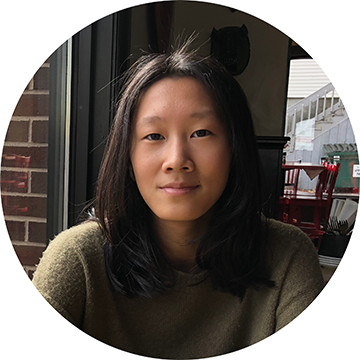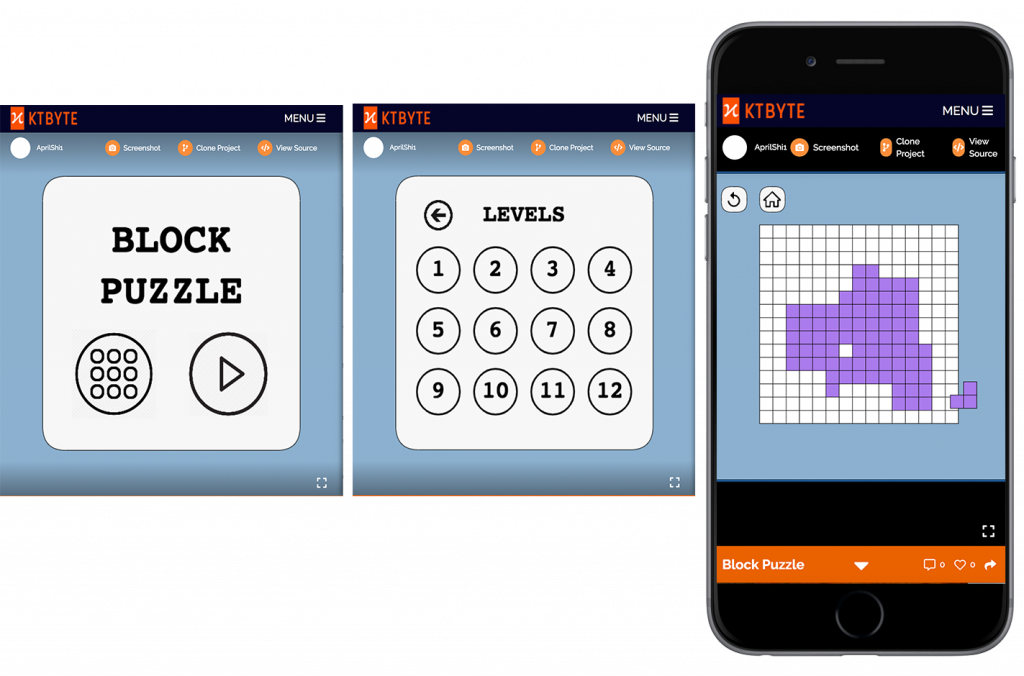How Learning to Research and Self-Study can Support any Endeavor you Take on!
by Alan Krajbich, KTBYTE Instructor
It can often be a challenge to decide how to prioritize ones learning. We all have school, hobbies, sports, music, teams, games… the list of practicable skills can seem unending, so where should you start? School seems to want to place an emphasis on everything: requiring you to take a variety of classes. Teams and sports want you to focus on one skill, and refine it to a sharpened point. There is, however, one skill that is invaluable to all others, and shouldn’t be overlooked in one’s education. Moreover, it is a skill that I see missing from lots of young learners: self-teaching.

One person who seems to have a good grasp on it is April Shi, a 15 year old rising Sophomore. April recently took a Weeklong class here at KTBYTE, and I was so impressed with her final project and overall work ethic that I asked her for some time to sit down and tell me about herself.
When I asked April about her hobbies, she took a deep breath and started down the list:
“I play volleyball and softball at school… I’m also part of the Debate team at school. […] I also play the Piano.”
While lots of kids and teens are encouraged to play instruments as a form of enrichment, it often stays academic. For example, when I was 7-12, I took Piano lessons, then Drum lessons afterwards for another year or two. I never really felt much resonance with either, though, so I dropped it soon after entering High school. For April, however, it’s a different story. In fact, she is now a published composer, with her piece titled “Desert Lark” being printed in the May 2018 edition of Piano Explorer Magazine.
But what about Computer Science?
Where did her skills as a programmer begin? Well, she’d taken some CS courses in School, but she truly cut her teeth in a Web-design class that she attended last summer. There, she learned how the ins-and-outs of HTML, CSS, and even a little JavaScript. From there, she went on to help build a webpage for her mother, and is currently helping build a page for her mom’s lab.
I asked her how she felt the web-design camp may have prepared or helped her succeed in the Java course. I was expecting a response about how Java and JavaScript are very different languages. April, however, noted that the most important skill she learned wasn’t any of the specific coding technique,
…but the ability to self-learn.
I must admit that I was surprised at this reveal. Surely at the camp, they must have focused on lots of lots of neat tricks and cool techniques for creating a great web-page. April assured me they did, but for the final project, she mostly relied on her own ability to identify a goal, then research a path to it.
Upon reflection, this re-contextualized her time here at KTBYTE. She was a quiet student, and during the project development time, she mostly worked independently, and didn’t ask for much help. This was made extra impressive as she decided to take on a project which used 2-Dimensional Arrays, a topic we didn’t really cover in class, and which requires an extra level of attention.
When I asked April about this, she told me that once I told her that 2D arrays would be the best way to structure her project, she “looked up ‘ 2D arrays Processing’ on Google, and the correct link popped up.” She had found the Processing.org support and reference page on her own, and proceeded to diagnose and debug her own code.
She was able to remain objective about her goals in the face of loss. In a working draft of her game, April had been attempting to create a shape menu at the bottom of the page, which could be used as a “bank” of pieces for each puzzle. She worked for several hours on that menu, but ultimately she “gave up on that menu. Turns out it was too complicated since [she] didn’t make the code flexible from the start.” Where most students, or even adult programmers, might be precious with their code, April was able to make the decision to cut her losses, and abandon that feature.
She learned a valuable lesson from all this:
“Make more variables at the beginning, so you can make adjustments later on. Don’t hard code too much!”
April’s Block Puzzle Game:

Click Here to Play April’s Project: https://www.ktbyte.com/projects/project/204901/block-puzzle
